I’m watching JAM and the Buttered Biscuits (formerly the Jeffrey A. Meyer Band) at The Shanty Shack in Santa Cruz. Their original songs have such great funk grooves I see a man eat chicken with his jaw chewing in time to the beat. The audience is reserved, they quietly watch, nobody dances. Then the band breaks into a funk version of the Beatles song “Eight Days a Week.” A young woman with black hair to her waist twirls onto the dance floor, her shoulders and hips roll like they’re wired to the bass line. She throws her head back and joins the crowd as they all belt out the lyrics. They know every word. Ain’t got nothing but love, babe.
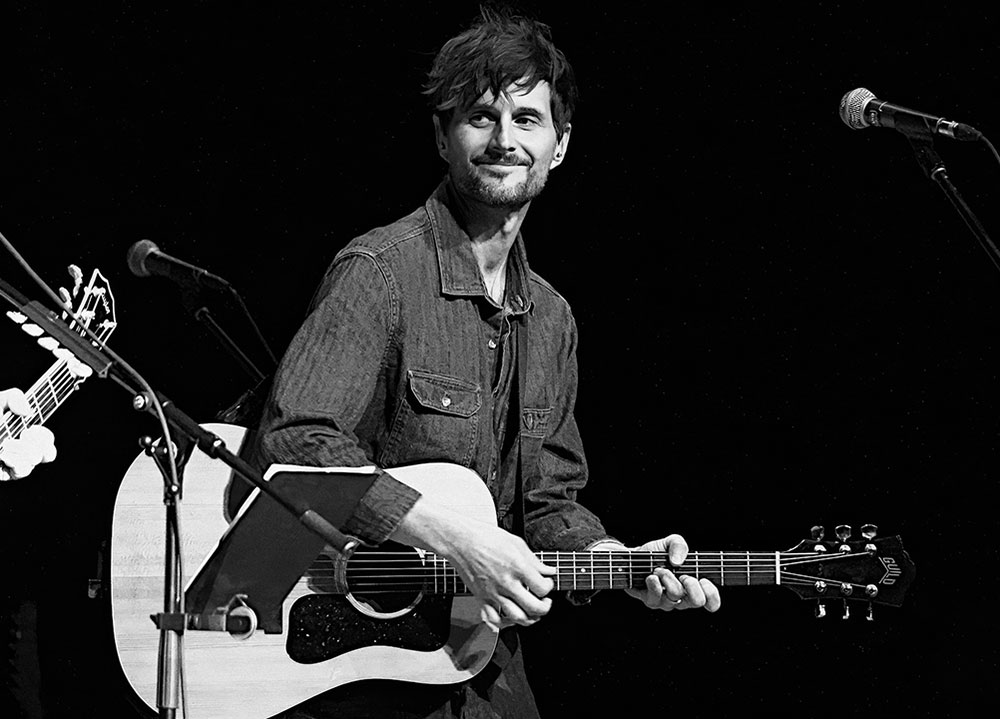
“One minute, you think you’re on top of the world and the future is bright,
the next minute you’re playing in a cover band”
— Facebook meme —
The rub between original inspiration and inspired interpretation of a familiar work fires the creativity of every working musician in town. We typically value artistic creation over imitation; some even equate doing original works with authenticity and playing covers with selling out. But hold on: Bob Dylan’s first album had nine covers, and the Beatles recorded 25 cover songs before Rubber Soul. Many of Mozart’s melodies were lifted from French folk songs, and isn’t our amazing Santa Cruz Symphony basically a cover band?
A local band can earn $500 to $8,000 for playing other people’s hits at a bar, wedding or corporate event. Original bands, meanwhile, scrape by on a percentage of the door. As Drain frontman Sammy Ciaramitaro puts it, “It’s not an easy place to live for most people with actual professions, let alone people trying to stay afloat as musicians.”
The result: Santa Cruz’s soundscape leans heavily toward tribute acts and cover bands. It’s not that local artists lack creativity—it’s that “Sweet Child O’ Mine” helps make the rent.
A successful local musician might earn about $52,000 a year. But in Santa Cruz, the housing wage—the hourly rate needed to afford a two-bedroom without being rent-burdened—is nearly $78 an hour. That gap forces many musicians out or locks them into cover gigs as survival work.
Scowl’s Kat Moss says it flat out: “It’s really hard to have a steady place to live.”
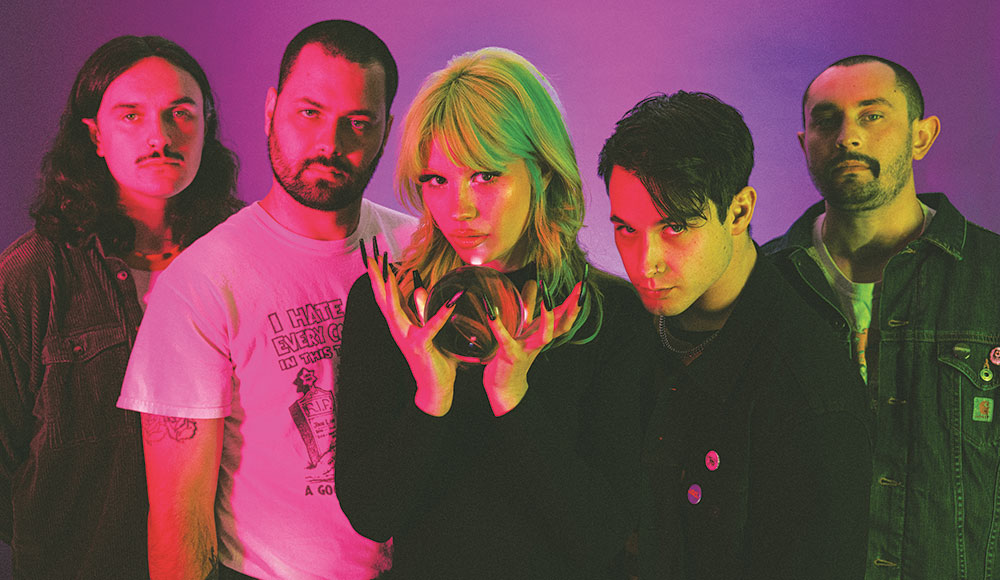
The strange reality of cover music is this: the band doesn’t pay to perform the songs, the venue does. U.S. copyright law requires venues to hold blanket licenses from ASCAP, BMI, and other PROs (performing rights organizations). That license allows a cover band to run through Beatles, Beyoncé or Blink-182 without a cease-and-desist letter showing up the next morning.
For a mid-sized venue in Santa Cruz, those licenses add up quickly. A 150-capacity bar running music five nights a week might owe nearly $1,000 to ASCAP annually. Add BMI, SESAC, and GMR, and the yearly “royalty bill” can hit $5,000–$12,000.
Every song that gets the crowd singing is already prepaid, regardless of whether the band makes money or the venue sells enough drinks.
Anyone who has put paintbrush to canvas, or pen to paper or guitar pick to string knows that for an “original work” to ring true, it must be based on what has come before. The joy I’m expressing from down in the cockles of my heart needs to feel familiar to your cockles. Every original musical voice is born from learning the craft by playing covers. The rub within the creative person’s soul is they want to express that voice while addressing the need to give their audience something familiar.
SongwriterLaura Strange is the creator and producer of the popular rock-opera Karen with a K: a Musical Temper Tantrum. Strange writes the songs for the all-original social satire and draws a hard line between original and cover performance. She says in Santa Cruz there are working stiffs, devoted to playing and creating music with little financial benefit, while others make more playing cover songs for “meaningless casual gigs at wineries.” Her working-stiff job is caregiving older folks, and she says that pays for her freedom to let her creativity rip, to be devoted to music for art instead of for money.
“The starving artist is alive and hungry in Santa Cruz. Music is not a career here, it’s an obsession. Everyone needs to have a real job to support their musical habit.”
I ask her if she ever goes to wine bars to perform covers. She says, “I will now and then.
“You know, it’s a little bit of money and it’s someplace that I can go drink for free. I love this area so much, but I starve to stay here.” For Strange, it’s about writing the songs. Even when she’s learning someone else’s song, she will start changing it to line up with how she’s feeling.
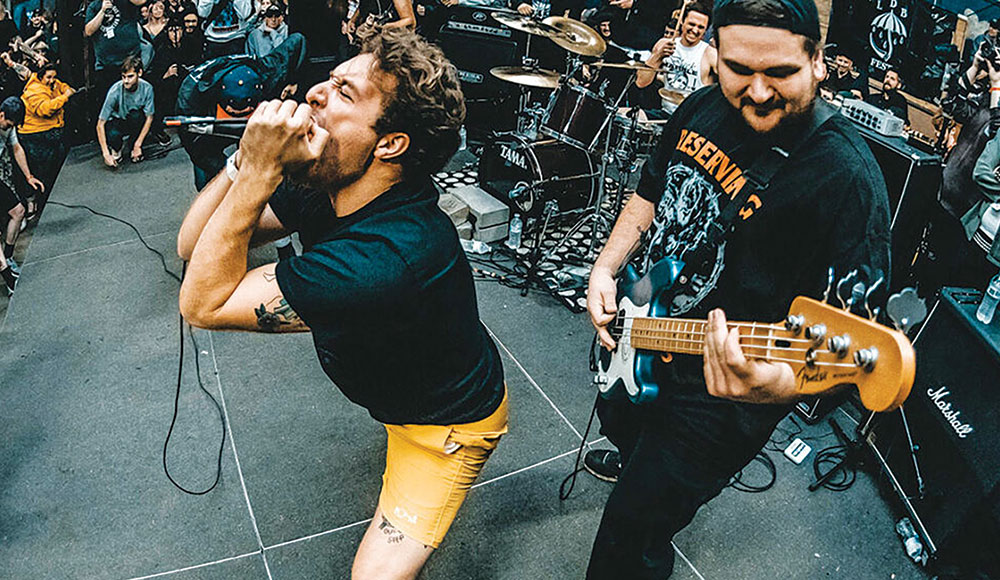
James Durbin served as the lead vocalist for the heavy metal band Quiet Riot from 2017 to 2019 and with a monstrously talented voice, plays with numerous tribute bands. On August 15he released his original single called “Hold Me.”
I spoke with James about cover songs as he was driving to a performance with The Lost Boys, a ’70s-’80s tribute band. “I feed those kids back in my house with cover songs. I’m in the business of selling a good time, of selling a one-way ticket back to your best memories that are set to the soundtrack of your life.”
When I ask him why cover tunes are so effective with audiences, Durbin says it takes you back to a moment.
“I was born in 1989 and most of the music I listened to after 15 was from 40 years before. I’ve always gravitated toward older-skewing music; there’s something about the soul of it. It’s about the innocence in the time it was created.” He believes that because things were simpler then, we can escape how chaotic life is now and go back to that innocent feeling through songs.
Durbin is grateful to play covers and feels responsible to take care of seminal music like Journey. “I have to do my absolute best with these songs because they were created by the best.” Durbin says audiences notice when he taps into his love of the classics. “When I sing the classics, I hear Steve Perry or Lou Reed in my head. I’m just trying to be some minuscule part of whatever magic they captured when they performed it.”
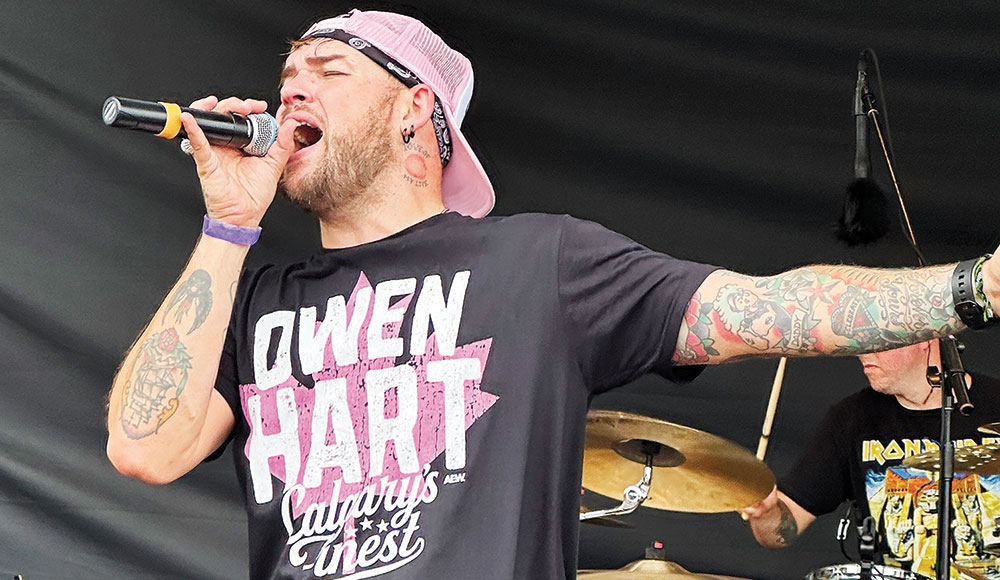
Rick McKee, a.k.a. Ukulele Dick, creator of The White Album Ensemble, agrees with Durbin that we want to hear that song again because it means something to us.
“The song happened at a time in your life when something special happened to you,” he says. “You play your originals at open mics, nobody cares. Play a Neil Young song and people go crazy because maybe they found themselves while living in a hippie commune, or when they met their first love.”
North Dakota emigree and Watsonville resident Jeffrey A. Meyer says that at the end of the day, they are a proud original band no matter what the venue, “but it’s nice to sprinkle in some choice tasty covers when you have three hours to play. I have much respect for cover bands, playing some of the greatest songs to have ever been written and serving them justice. It’s not an easy thing to do.”
Venues will sometimes request cover songs to serve their clientele. One bar owner said, “Look, this is Campbell. They want to hear things that they can dance to and that they know.” Meyers said they started throwing covers into the middle of their original tunes. “For example, we’re playing an original song, and in the middle, we throw in Tom Petty, ‘Mary Jane’s Last Dance,’ and then come back out into the original song. In a way that links the songs. It reinterprets the Tom Petty song and people like the familiarity. We play ‘Bad, Bad Leroy Brown’ and ‘Eight Days a Week.’”
Larry Graff is a founding member of the Banana Slug String Band, a beloved Santa Cruz environmental education group, as well as the Grateful Dead-based Painted Mandolin. Larry tells me that even though the Banana Slugs play all original tunes, they haven’t encountered resistance to that because they’re mostly playing for kids. “The original tunes are very participatory, so they’re having fun right away and they don’t care that it’s original.”
Graff says Painted Mandolin started off as a Jerry Garcia-inspired acoustic band, traditional bluegrass along with some of his tunes. “Sometimes we changed the arrangements, so it was uniquely ours, which was very successful because people recognized the tune, yet it was a cool new arrangement.”
At that point they started writing original songs and Graff says that was the challenge, playing original tunes when people expect covers.
“Our originals have to measure up to the songs by Robert Hunter and Jerry Garcia and Bob Dylan.”
Depending on the stage, Graff says sometimes it’s important to play originals. The band played the Strawberry Music Festival main stage this year; Graff says, “It’s good to present original material on a big stage like that. There’s an expectation that they’re hiring you and paying a lot of money for you to be original. We will be original.”
Alex Lucero is a recording artist rooted in Santa Cruz who performs a vibrant mix of soul and Americana. His band has independently released six all-original, full-length albums, with a new, seventh one called “The Drive Home.”
Like many of the musicians in this story, I caught up with Alex by phone while he was driving to a gig. I ask the songwriter, since he has recorded many dozens of originals, why and when would he play a cover song live? Lucero says a cover is a likely choice when playing a live show and the audience has never heard you before. “A lot of audiences only want to hear songs they’re familiar with, and as soon as they’re not familiar with the song, they kind of check out mentally.”
Lucero says they were primarily a cover band 10 years ago and as his repertoire of originals got larger, he wanted to perform as an original artist rather than playing other people’s music. Even then, he found that throwing in a cover or two in a three-hour concert would spark familiarity and build common ground. They hear Alex Lucero’s voice in the way he does the song, and it can clue them into deeper ties with his music.
“If you can take somebody’s tune and put your own spin on it and make it your version, that’s what all the greats did.” Alex points out that for Jimi Hendrix, Stevie Ray Vaughan, Chris Stapleton, Joe Cocker, for every single one of those bands, their top hit was a cover. “You know, Jimi had ‘Hey Joe,’ and Led Zeppelin used all the blues stuff from the ’40s and ’50s.”
Alex agrees with Larry Graff’s notion that the venue can affect the cover/original mix, remembering that when they did a Kuumbwa show last year, they did all originals. “When people are paying $35 a head to come and sit for an evening of Alex Lucero band music, I almost feel like it’s getting in the way to play a cover.”
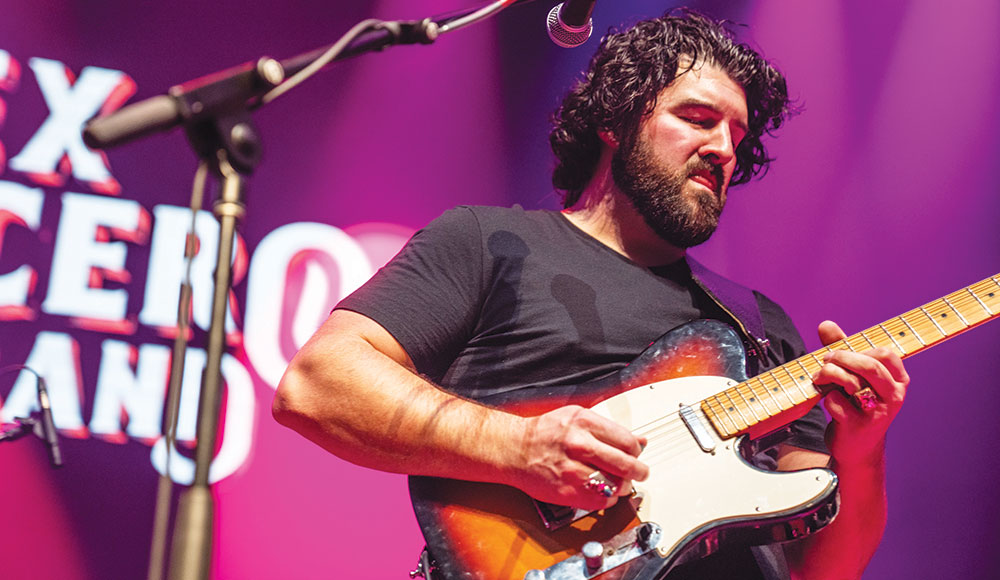
Bob Prikazsky is owner/operator of El Vaquero Winery, an emerging music venue in the south Santa Cruz County burg of Corralitos.
Bob says that there are bands that specialize in doing a great job on covers, but there are other bands that have messages. And that is difficult because people want to hear music that is familiar to them. “New music from a new band is pretty difficult to dance to until you become familiar with it.”
The El Vaquero owner has seen the journey of Alex Lucero with his audiences and says that Alex has played enough originals for a long enough period that people recognize his music, they love it, and they dance to it.
“Just by familiarity with him, people are now accepting his originals. It just takes a lot more time.”
Prikazsky notices that in the rock ’n’ roll genre, there are significantly fewer local bands that are going after original music. “Most of them are focused on dance music to keep the crowd happy. The majority of rock bands these days do covers. It can pay the bills, as compared to people who are doing originals, generally kind of starving artists.”
Sleepy John Sandidge, legendary radio voice and show promoter, agrees with Larry Graff that whether to cover or not can depend on the venue. “People are more likely to dance at Moe’s Alley than at the Kuumbwa Jazz Center. The Kuumbwa is a listening room where originals are easier to sell.”
Sleepy John says the idea at KPIG radio was to establish their sound and get people listening with the familiar likes of the Doobie Brothers, and Crosby, Stills, Nash and Young. Then they drop in something new, like Robert Earl Keen. “People go, ‘Hmm… haven’t heard of him. Good song though.’”
Sandidge suggests if you’re frustrated that people would rather hear you play covers than originals, maybe you need to write better songs. “You’re competing with ‘Why Don’t We Just Get Drunk and Screw.’ Originals have to be that strong to break through on a commercial station like KPIG. Exposing more obscure originals, well, that is one of the great functions of community radio.”
Laurence Bedford, owner-operator of the Rio Theatre, Santa Cruz, tells me the Rio is having more and more sold-out tribute shows, including ABBA, the Eagles, Elton John and, of course, the Beatles. Bedford says, “It’s the older crowd. I think that demographic is what is creating the audience for our cover bands. It’s nostalgia.”
The Rio Theatre owner reports he fields calls from publishing rights companies like BMI and ASCAP about cover performances.
“These copyright people are on your ass for that. Even though it’s not the original artist playing it, we have musicians playing songs that have been copyrighted. Some of these third-party copyright people will come at you because they want part of the pie. They say they’re going to give it to the artist, but I don’t know how you’re going to give that money to John Lennon.”
A music venue owner/operator, who wishes to remain anonymous, tells me that he totally agrees with Laurence Bedford. He suggests that one difference between himself and Laurence might be his experience working with movies and TV.
“I kind of know the way lawyers are and the way the business works, and I just know that it’s total bullshit. I know it’s just a bunch of groups of lawyers, and there’s no money getting to the artists.” He says that lawyers came to him and said, “Hey, your venue is covering Bruno Mars.” But the venue owner says that no one has ever played a Bruno Mars song on his stage. “So, fuck ’em.”
Rhan Wilson is a founding member of Jazz the Dog, a Santa Cruz–based trio featuring himself on guitar, vocals, looping, with Rick Zeek on guitar, vocals, and Patti Maxine on lap steel and vocals. They blend Americana, soulful originals, and reimagined covers with an improvisational edge.
Wilson says the decision to cover or not depends on the gig you take; for a wedding gig, you’re probably going to play hits that they want to hear; if you’re trying to do an artistic showcase, then that’s a whole different thing. “I have been approaching covers as if they were originals, and make it sound good for the context. The Beatles wrote such great songs that you could play a Beatles song in any style, and it would still hold up.”
Wilson observes that for songs we have listened to on the radio, we tend to think that’s the definitive version, when in fact that was just one of the many ways that song could be presented. “Do I want to be a Michelangelo, or do I want to be someone who can forge Michelangelo paintings? To be known for being able to reproduce somebody else’s work instead of creating my own, influenced by my heroes? It’s a lot of work to sound like somebody else, but that’s a gig. Cover bands can get good money, they’re really good at it and people love it.”
Andy Barr is a guitarist and songwriter whose work spans both a high-profile role as a touring vocalist, pianist and guitarist for the classic rock band America, and his own venture, Formerly Alien with Amy Merrill, showcasing his songwriting imagination, an original sci-fi/ “space folk” band.
When I ask Andy why he would play a cover, he laughs and says, “When I sing an America song like ‘Sister Golden Hair,’ it is kind of like doing a cover. There’s a lot of reasons why you might play a cover in Santa Cruz, like to entertain people at the Crow’s Nest, a beautiful thing to do. When I choose to play someone else’s music, it’s a creative act in that I am the creative instrument without needing to be responsible for the source material. I get motivated to learn a song because it’s doing something to me and I want to understand why, like I’m trying to get closer to the magic of a song. It’s like becoming intimate with a person; I want to spend some time with this music to see what we can learn from each other.”
When Barr sings and plays guitar for America, he says he spends a long time learning the songs, because for “Sister Golden Hair” to feel good to people in the audience, who have known the song from when they’re teenagers, it has to feel authentic. “I put a lot of time into singing them as if they are my songs, I’m trying to sing it from a place of what resonates with me. These songs live in the hearts of millions of people who have their own relationship with it.
My role in that band specifically is to deliver the music in a way that they are they still have ownership of what it feels like to them. I’m trying to deliver it in a way that retains its holiness. I sometimes get feedback from people who say, ‘It reminds me of the first time I heard it, on a record player.’
“If that’s the feedback I get, I feel like I’ve done my job.”
Preacher Boy, a Santa Cruz slide guitar player known for his modern blues music, reminds us that it all starts with the songwriting. “‘Hotel California’ didn’t just fall out of the sky. Some dude sat at a desk with a pen, paper and a guitar and wrote it. If you don’t perpetuate that process, the well dries up.” He says that he doesn’t go to music to see what he expects. “I want my imagination sparked. I want to be rendered alive. Nobody knew they wanted Jimi Hendrix before he showed up.”
Different goals, different measures of success
As a comedian, I have no cover opportunity. People come to hear the unique perspective of the comic and using other comic’s material is absolutely verboten. That said, every working comic knows that if the majority of the crowd is not familiar with what the joke is referencing, that joke is in serious trouble and is likely to yield a response of crickets. So again, even in the non-cover art of comedy, familiarity is paramount.
In Santa Cruz, there is palpable tension between making art and making a living. There is a lot to be said for paying the rent; ten out of ten landlords agree.
Covers can be a pragmatic choice for many musicians who want to earn a living and still fulfill the love of performing. Their success is measured by crowd interaction, dancing, and the immediate gratification from hearing familiar hits.
The monetary tension is there when you choose between built-in crowds versus the crowd you’ve got to convince. The tension is there between feeding your artistic dreams and feeding your kids. The tension is there between choosing a listening room or a party venue. And the tension really comes home when you ask yourself if your original song is going to grab them like “Eight Days A Week.”
Joshua Logan contributed to this article.


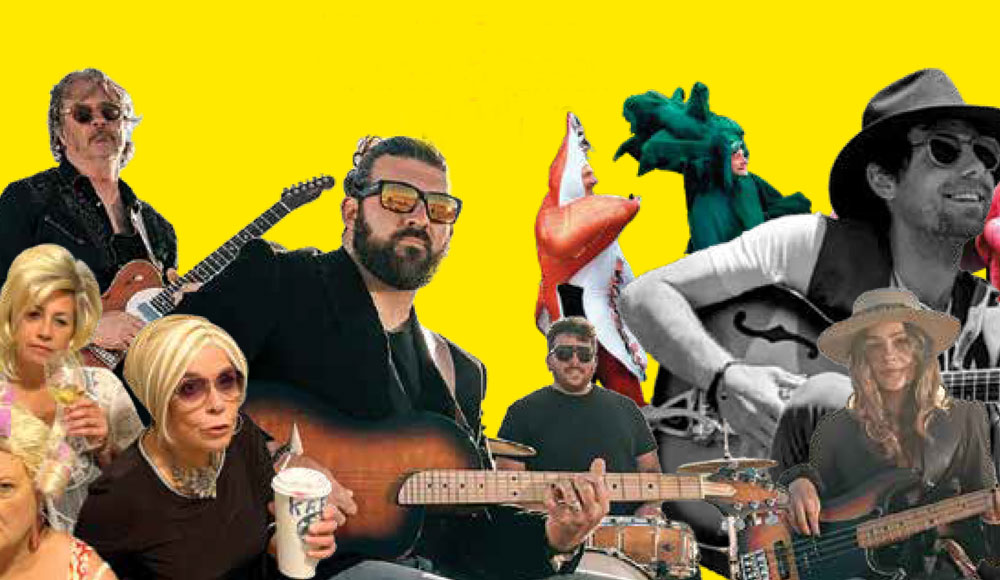









This is a wonderful article; thank you Richard. I think it largely misses one of the main reasons that people want to hear covers. Yes, they’re familiar and they remind people of moments in their lives, but I think the main reason is hinted at by Jeffrey A. Meyer referring to the songs being covered as “some of the greatest songs to have ever been written,” and Sleepy John saying “if you’re frustrated that people would rather hear you play covers than originals, maybe you need to write better songs.” Bands that do covers try to select great songs to cover and have an enormous universe to choose from, so the vast majority of the songs cover bands perform are simply much better songs than the original songs they and other bands play.
I have been in the audience when a cover band is on stage and notice a couple of important details – sometimes the choice of songs being covered are not familiar enough to the majority in the audience…hardly anyone is singing along but other times those in the crowd are singing along madly and I am not sure how or why that happens (does it depend on ‘social lubrication?).
Sometimes it takes a band like Coffee Zombie Collective who re-arrange the songs they cover in highly unusual ways to show that they have a pulse on what an audience can get into; other times, a cover band shows that they have very limited ‘soul’.
Most of the time, my preference is for original music – doesn’t have to be ‘dance-able’ (whatever that really means, I’m not really certain).
As for comedy, there have been far too many times when I have been to a stand up performance where the same jokes are told year after year and that leaves me dumbfounded (and not likely to return for a 3rd helping of the same menu item).
To each their own, of course….
Good issue to ‘cover’.
But there are other ‘types’ of musicians, that play in ensembles that actually read musical literature. When a group (classical orchestras, symphonic wind ensembles, jazz big bands, musical theater, school bands, etc.) buys a piece of music, live performance rights come with that purchase. It’s part of the business.
I’ve been playing in these types of ensembles for over 50 years but now spend my time playing in bands that feature original compositions. I want to support other people’s creative endeavors. Our area features a wide selection of original bands and genres. Two of the best:
JIVE MACHINE
CEMENT SHIP
Great mentioning of those two bands, Dan ! May I add Floratura to that short list?
Thanx, Dee. I forgot mention my own ska punk band Rock Shed Rangers. Ha
oh yessssssssssssssss…a most enjoyable band
caught your show in the summer !!
Great article that captures the heartbeat of the Santa Cruz music conversation. There’s no denying the pure, nostalgic joy a great cover band brings to a Saturday night at the Crow’s Nest. But the unique, creative soul of Santa Cruz has always been nurtured by its original artists.
Beyond just venue booking, how can the community better support original artists? Are there local sponsors, radio stations like KPIG, or festivals that you feel do a particularly good job of bridging this gap and giving original music a platform that can compete with the draw of familiar songs?